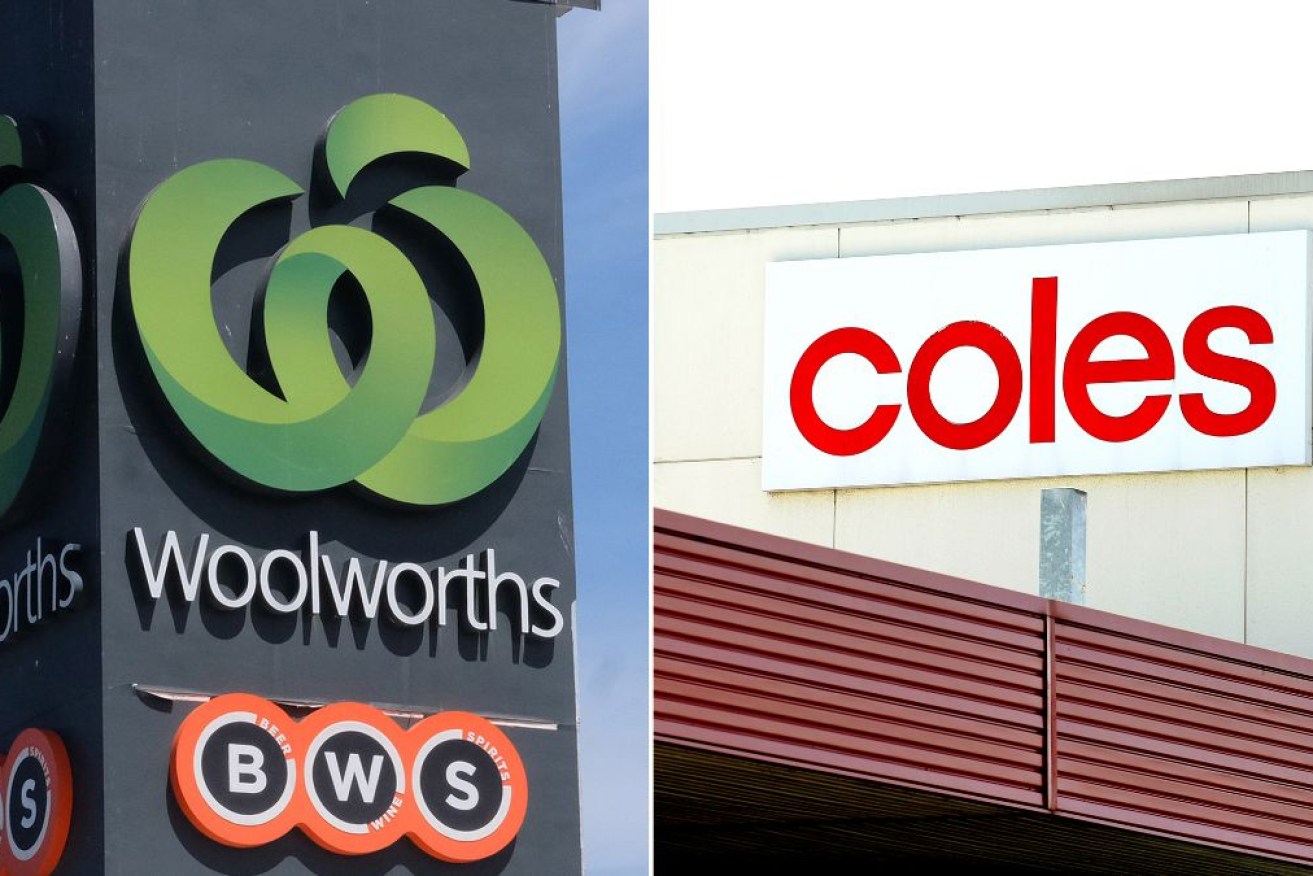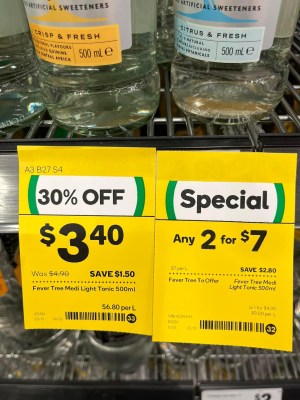Australians fed up with supermarket surveillance as Woolworths, Coles crack down


Shrinkflation has hit a range of popular groceries, new analysis finds. Photo: AAP
Australians are fed up with the swathes of cameras and anti-theft technology at major supermarkets, according to a new survey exposing how it inconveniences shoppers.
Figures published on Wednesday by comparison firm Finder showed one in four surveyed in a recent poll of 1039 people want cameras removed from self-serve checkouts.
Finder’s head of consumer research Graham Cooke said frustrations are boiling over amid wider anger at Coles and Woolworths over high prices and misplaced suspicions about theft.
“People just don’t like to be suspected of potentially shoplifting when they’re already paying 10-15 per cent extra [for groceries] than they were last year,” he explained.
“There’s increased focus on the supermarkets due to the cost-of-living crisis and increased stress families are experiencing from grocery bills.”
Cracking down on theft has become a bigger priority for Coles and Woolworths over the past year after rising rates of what’s called shrinkage in the industry after the pandemic.
Last year the ABS reported a 17 per cent increase in retail theft as cost pressures mounted.
Camera surveillance throughout stores and particularly at self-serve checkouts – where both roof-mounted and terminal cameras operate – have become commonplace nationwide.
Additionally, reports have surfaced on social media of trackers being attached to meat packaging in some stores, with a post on Reddit this week depicting large physical tags on steaks.
Cooke said the supermarkets are trying to minimise loss after a spike in theft amid the cost-of-living crisis, though survey data indicates just as many people accidentally miss-scan items at self-serve checkouts as do try and steal items on purpose to cut costs.
“If you pass on the task to the consumer of having to scan all their own groceries, that opens up the opportunity for people to scan things incorrectly,” he explained.
The strategies Coles and Woolworths are using to prevent theft is nothing new, however, with similar strategies employed by much larger chains in the US and Europe for years.
In some cases it’s even more advanced; for example, the US’ biggest supermarket chain Walmart uses register cameras to notify employees directly about miss-scanned items.
Walmart workers overseeing self-service checkouts can monitor each register from their phones, and when there’s an issue they’re even able to shut down the checkout entirely.
Shoppers ‘bamboozled’ by discounts
Meanwhile, a parliamentary inquiry has heard that Australia must ban supermarkets from using confusing promotions to ensure shoppers aren’t “bamboozled” into making bad grocery choices.
Appearing before a federal probe into supermarket pricing on Wednesday, chief executive of consumer group Choice Rosie Thomas said the likes of Coles and Woolworths are taking advantage of “potentially misleading” discounts to drive profits from Australians.
She argued special deals for loyalty program members and multi-buy specials that induce extra spending are two prominent examples that should be regulated.
“Major supermarkets promote how they say they are helping with the cost of living through so-called specials and other promotional practices,” Thomas said.
“[But] the proliferation of promotions are confusing, and in some cases potentially misleading, and frequent changes makes it difficult for consumers to know if they’re getting a genuine discount.”
Supermarkets have begun offering special deals to members of their loyalty programs or through their mobile apps as a way to entice more membership into their duelling schemes.
But Thomas said Australians shouldn’t have to sign over their personal data to access the best prices on essentials like fruit and vegetables.

Deals offered as ‘specials’ can be confusing for customers. Photo: TND
Additionally, CHOICE has pointed to recent research by regulators in New Zealand that found consumers tend to overspend when presented with multi-buy specials, which offer discounts when buying multiple of the same product or different types of foods together.
Thomas said its even hard for consumers to find reliable data about how prices change, a concern that has been echoed by other experts that have spoken to TND in recent weeks.
“The lack of transparency means verifying claims about past and future pricing can be a challenging process,” she said.
“It opens up the very real possibility of mischief in supermarket pricing.”
Thomas said the consumer group also backed a proposal for court-ordered divestiture powers if supermarkets were found to have breached competition laws.
-With AAP








